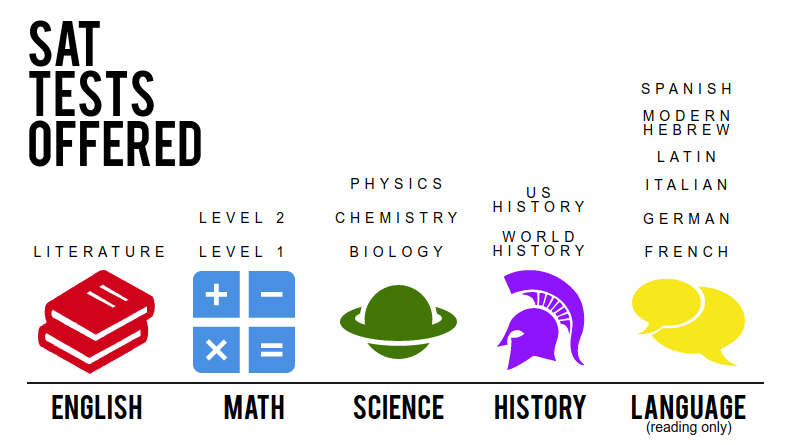SAT II, too? Subject tests overwhelm students
February 23, 2018
It’s 8 a.m. sharp. On each desk sits a test booklet filled with all 20 available Subject Tests. The proctor directs everyone to open their books. The test-takers have 60 minutes to complete 50-95 multiple choice questions. Let the tests begin.
Only a few colleges, such as MIT, Harvard University and Georgetown University, still require that applicants take two or three subject tests. Recently though, many students and colleges alike seem to be opposed to these tests as they aren’t always an accurate measure of students’ abilities; participation in the tests has fallen by 13.5 percent in the past decade.
Many schools, such as Haverford College, have abandoned the requirement of Subject Tests and focused more on evaluating ACT and SAT scores.
“If a student has taken an exam and wants to submit those scores, they are more than welcome to and we’ll definitely look at them and consider them within the greater context of a student’s application,” Haverford College admissions counselor Katherine Lee said.
Aaron Golumbfskie, senior tutor and education director at PrepMatters, believes that Subject Tests will become obsolete in the near future, he said. As time goes on, Golumbfskie thinks the Subject Tests will be fairly minimally considered by admissions counselors in the admissions process, while the SAT and ACT’s importance will continue to increase.
“I can tell you that at PrepMatters, we did a lot more Subject Tests tutoring five years ago, ten years ago, than we’re doing now,” he said. “[College Board has] devoted no resources to the Subject Tests which I think shows that they’re kind of on the way out.”
Prior to 1994, Subject Tests were known as Achievement Tests and students still studied for both the Subject Tests and the standard SAT, even though the College Board maintained that students couldn’t study for the SAT.
Now, students focus more heavily on studying for the SAT outside of school and using information learned from classes to take Subject Tests, Capital Educators program director Sam Holley said. Until a 2016 partnership with Khan Academy, the College Board hadn’t officially recognized that a student could even study for the SAT test, even though they did promote studying for Subject Tests. Now, the SAT fills the role of subject tests, as it does a fairly good job of showing a student’s competence in school subjects, he said.
The College Board hasn’t recently restructured or adjusted the Subject Tests even though they have recently redone most AP tests and the SAT—completely changing the format of the SAT in 2016—which could signify that the College Board itself doesn’t see the Subject Tests lasting much longer and realizes their diminished importance, Holley said.
At Capital Educators, the programs and tutors focus mostly on the main exams—the ACT and SAT—rather than the Subject Tests.
“With the vast majority of students I work with, we don’t really even bring it up,” Holley said. “Most students don’t need to take them, but if they’re going to an Ivy League or Georgetown University, or some other college on the elite tier, they do strongly recommended that you take two or three of them.”
According to the College Board, Subject Tests help determine in which subjects students are strongest. Additionally, the College Board claims that getting a good score on a Subject Test can prove to colleges that a student is ready for the rigor of college courses.
In the end, Golumbfskie believes that these tests are only helpful in terms of acting as another piece of an application and should be treated as an accessory rather than a necessity, but they are helpful to some students.
“If you’re a better tester than you are a day-to-day student, then taking more tests is better because you can show your strength that way,” he said. “If you’re a better student than you are a tester, don’t take as many tests.”
Senior Clara Lyra took three different Subject Tests, retaking the Math II test twice to improve her score. Based on the colleges she was applying to and their recommendations, she felt pressured to take the tests and send her scores, she said.
“A lot of schools will recommend them, which basically means required, so there’s a need to take them,” she said. “One ACT score isn’t really that demonstrative of my academic abilities, so in that manner I think they were very helpful.”









